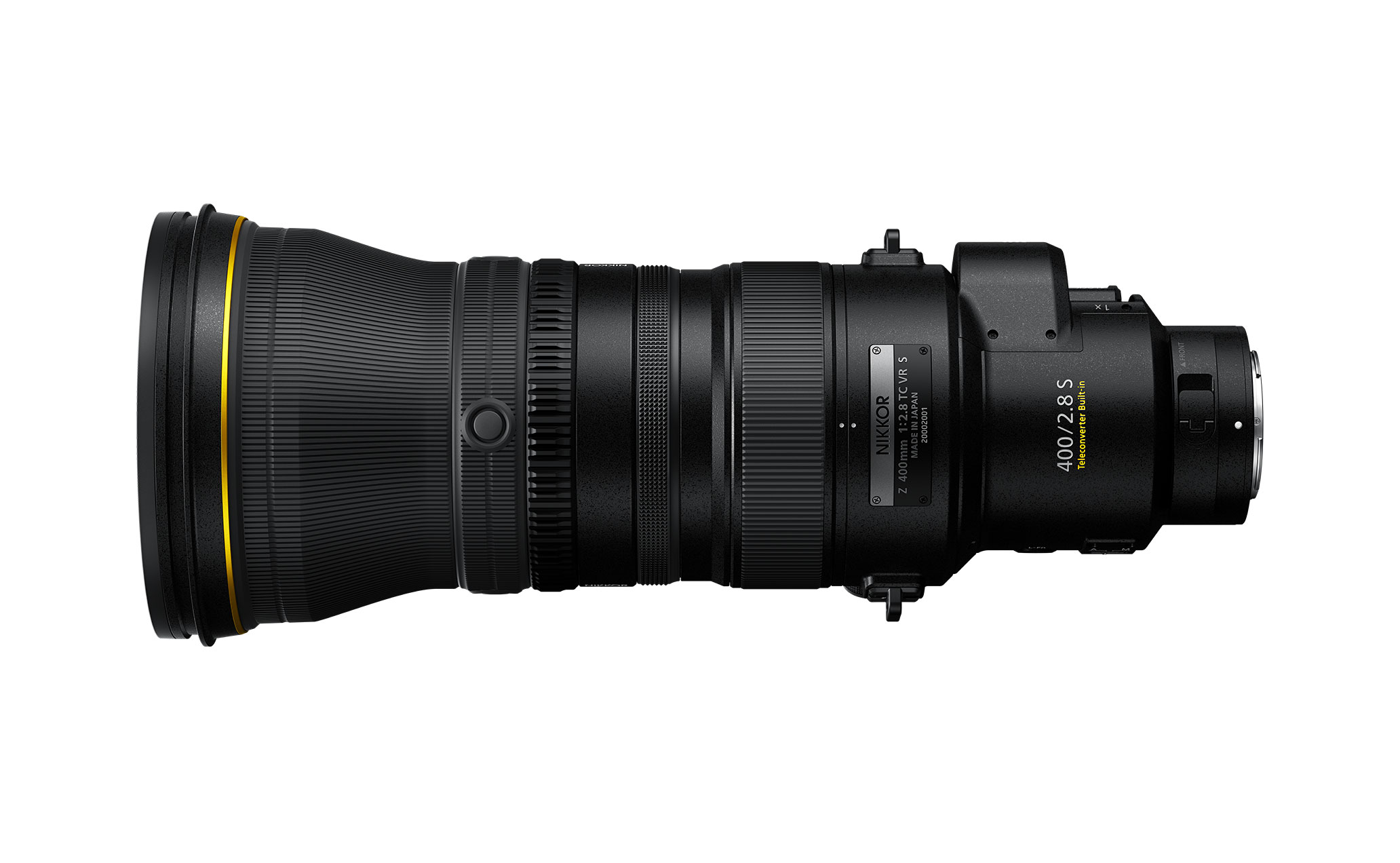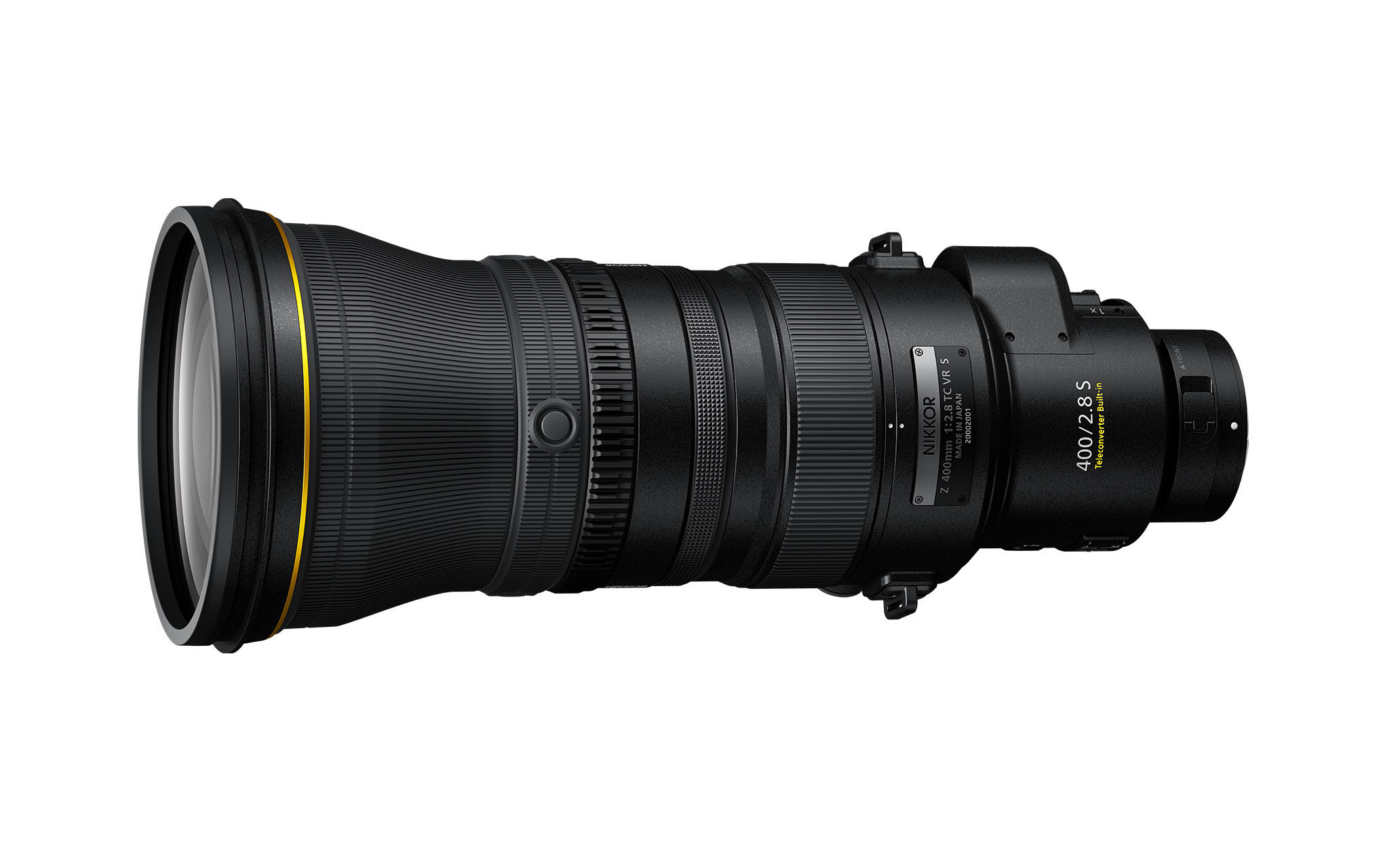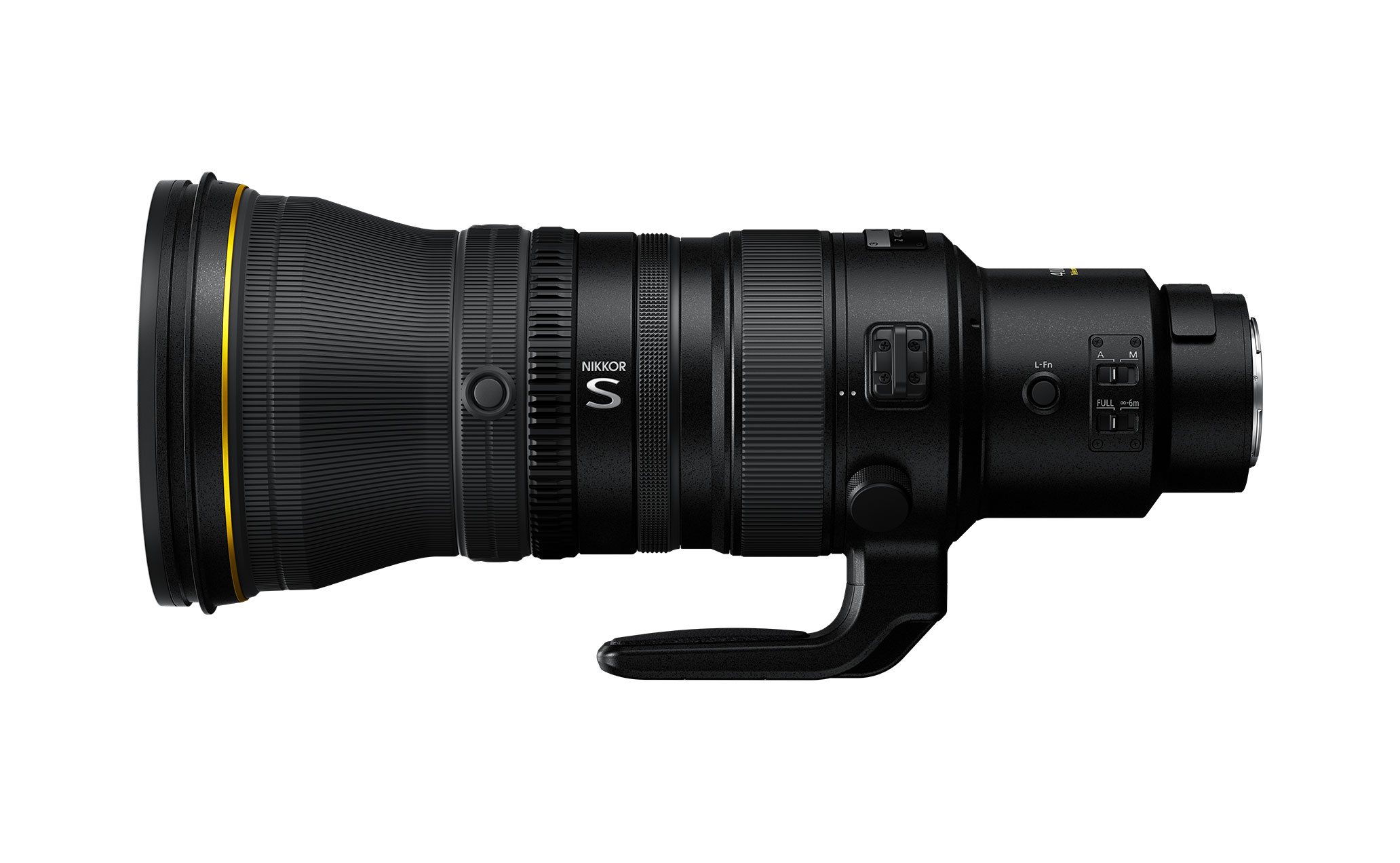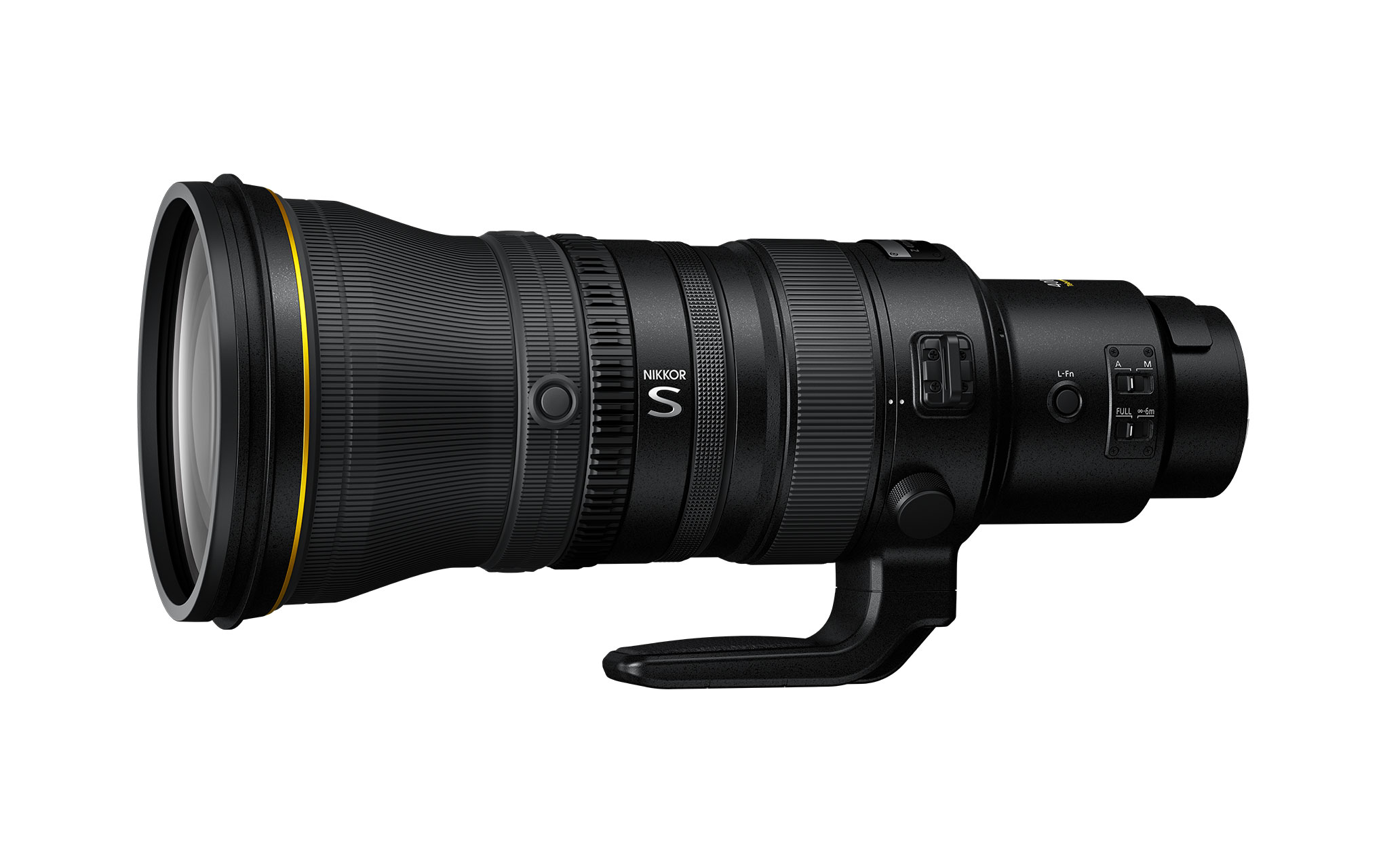NIKKOR Z 400mm f/2.8 TC VR S

S-Line
Overview
- 400 mm and 560 mm supported: a built-in 1.4x teleconverter enables easy switching between the two focal lengths with a simple operation.
- Two fluorite lens, an SR lens, a Super ED glass and two ED glass elements effectively suppress various aberrations including chromatic aberration, delivering outstandingly sharp rendering from the maximum aperture with or without the built-in teleconverter in use.
- Large, beautiful, natural bokeh, unique to a 400mm f/2.8 lens, creates a sense of depth in images, making the subject naturally stand out.
- Outstanding tolerance for backlight thanks to the newly developed Meso Amorphous Coat that boasts the highest anti-reflection performance in NIKKOR history as well as ARNEO Coat.
- Amazingly powerful, 5.5-stop Vibration Reduction function ensuring stable, blur-free images even when the built-in teleconverter is used.
- Newly developed Silky Swift VCM (SSVCM), a new AF drive actuator that combines a VCM (voice coil motor) and a new guide mechanism developed by Nikon, which realizes higher-speed, higher-accuracy and quieter AF operation.
- Body weight at approx. 2950 g/6 lb 8.1 oz achieved with consideration for portability and agility.
- Highly robust body made of magnesium alloy with superior dust- and drip-resistant* performance as well as fluorine coat for enhanced antifouling performance.
- *Thorough dust- and drip-resistance is not guaranteed in all situations or under all conditions.
- Lens design with intensive consideration given to video recording, including quiet AF, click-less control ring as well as focus-breathing compensation.
- Newly equipped Fn ring combined with the memory recall function enables immediate access to the pre-registered frequently used focus positions.
Specifications
Focal length |
|
|---|---|
Maximum aperture |
|
Minimum aperture |
|
Lens construction |
25 elements in 19 groups (including 7 elements in 4 groups in the built-in teleconverter, 2 ED glass elements, 1 super-ED glass element, 2 fluorite lens elements, 1 SR lens element, elements with meso-amorphous and ARNEO coats, and a fluorine-coated front lens element) |
Angle of view |
|
Minimum focus distance |
2.5 m/8.21 ft from focal plane |
Maximum reproduction ratio |
0.17x |
Diaphragm blades |
9 (rounded diaphragm opening) |
Filter-attachment size |
46 mm |
Dimensions |
Approximately 156 mm/6.2 in. maximum diameter x 380 mm/15 in. (distance from camera lens mount flange) |
Weight |
Approximately 2,950 g/6 lb 8.1 oz |
Supplied accessories |
LC-K105 Lens Cap (front cap), LF-N1 Lens Cap (rear cap), HK-42 Lens Hood, CL-L3 Lens Case, LN-3 Strap |
- Specifications are subject to change without notice.
MTF Chart
• Without built-in teleconverter
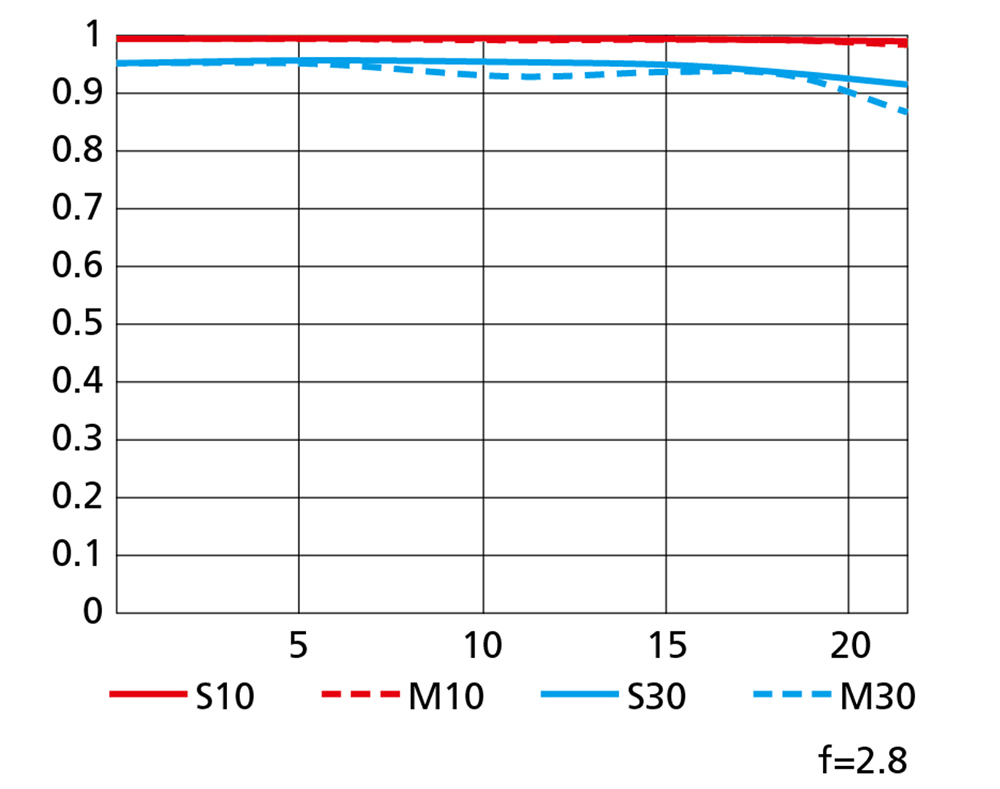
• With built-in teleconverter
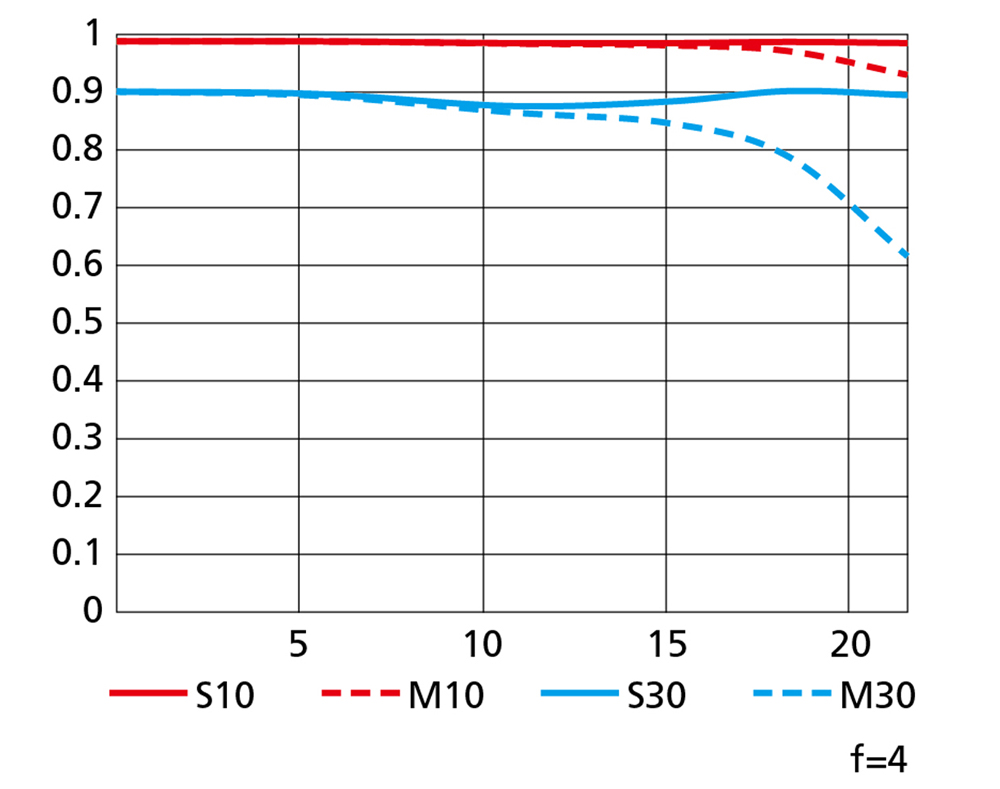
| Spatial Frequencies | S: Sagittal | M: Meridional |
|---|---|---|
| 10 lines/mm | ||
| 30 lines/mm |
Lens Construction
Without built-in teleconverter
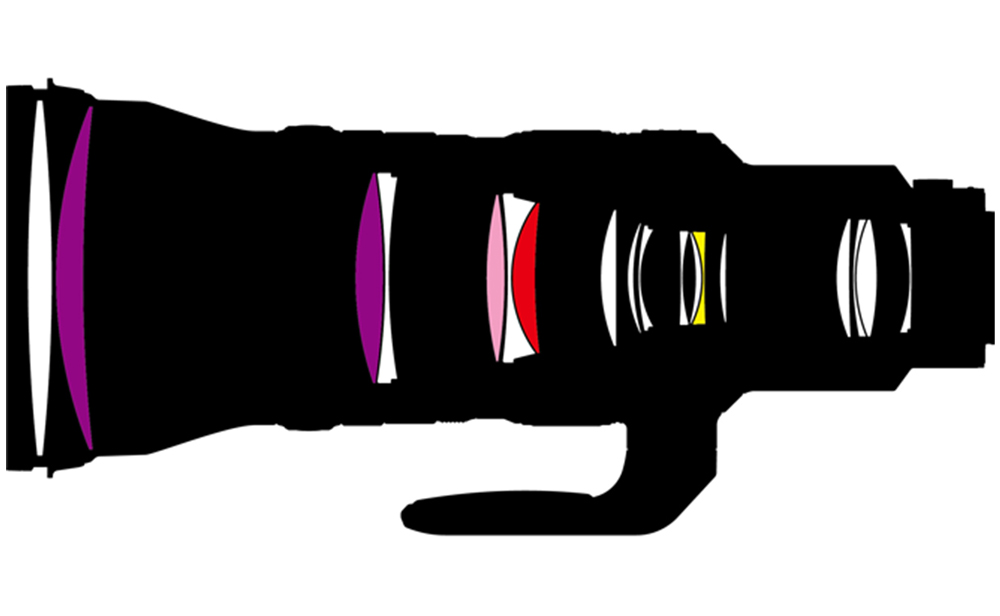
- ED glass elements
- Super ED glass elements
- Fluorite lens elements
- SR lens elements
With built-in teleconverter
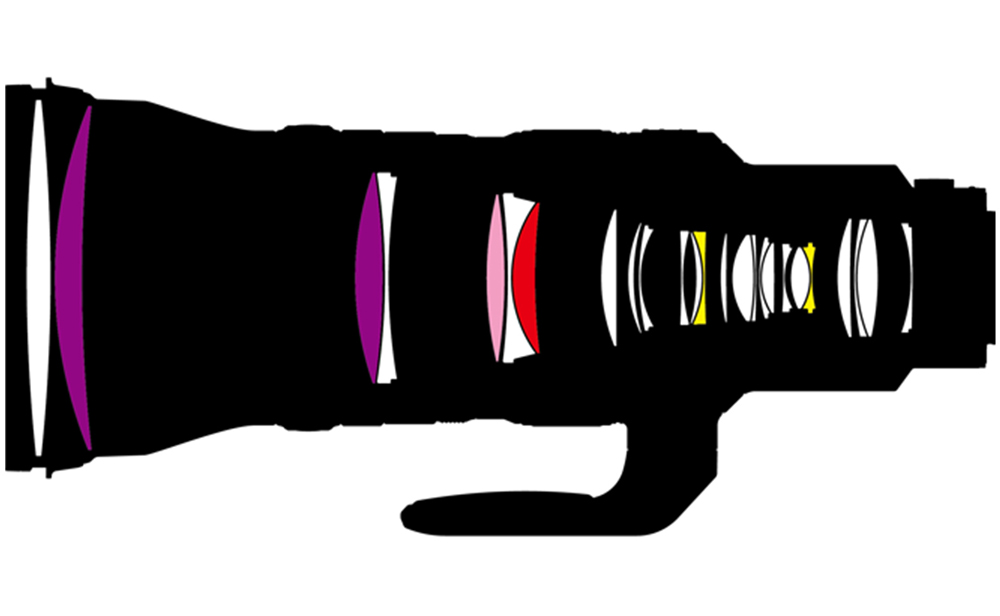
- ED glass elements
- Super ED glass elements
- Fluorite lens elements
- SR lens elements

